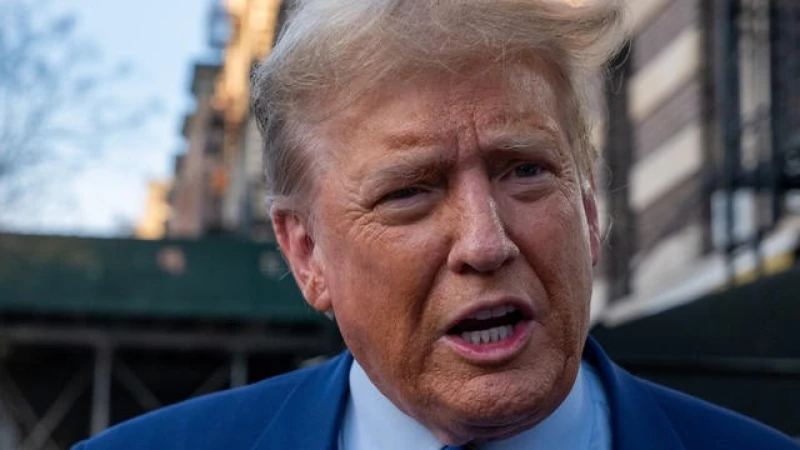Trump Media & Technology Group is alerting the Nasdaq exchange that its stock — trading under the ticker DJT, after former President Donald Trump's initials — may be the victim of "potential market manipulation" due to short-selling activity.
The letter, which was sent Thursday to Nasdaq CEO Adena T. Friedman, claims that some traders are relying on so-called "naked" short selling, which is when an investor shorts a stock without first borrowing the shares. It's a practice that is effectively banned in the U.S., with regulators requiring trading firms to make sure that traders have the securities on hand to complete a short sale.
The complaint comes after a wild ride for Trump Media's stock since going public last month on the Nasdaq exchange. The shares lost two-thirds of their value from an initial peak, slicing billions of value from the fledgling media business, whose primary asset is the social media service Truth Social.
While Trump Media has regained some of that lost ground, rising 20% this week through Monday morning trading, some investors had complained on Truth Social that they suspected short sellers were contributing to the decline.
"As of April 3, 2024, reports indicate that DJT is 'by far' the most expensive U.S. stock to short," stated Trump Media CEO Devin Nunes in a letter dated April 18 to the Nasdaq CEO.
In his letter, Nunes requested Nasdaq to "advise what steps you can take to foster transparency and compliance by ensuring market makers are adhering" to regulations that prohibit naked short selling.
Nasdaq responded by stating, "We are committed to the principles of liquidity, transparency, and integrity in all our markets."
"We have long advocated for transparency in short selling and have actively supported the SEC's rules and enforcement efforts to monitor and prevent naked short selling," Nasdaq added.
Short selling, a legal practice, involves traders borrowing shares of a stock they anticipate will decrease in value. The borrowed shares are sold immediately on the market, and if the stock price drops, the trader buys it back at the lower price to return the shares to the original lender, aiming to profit from the price difference.
Short selling, a common practice in the stock market, involves borrowing shares of a stock and selling them with the hope of buying them back at a lower price. However, there is a controversial practice known as "naked" short selling, which is illegal in the U.S. when done intentionally. This practice skips the step of borrowing shares, potentially leading to large declines in a target company's stock price and undermining market confidence. According to law firm Kohn, Kohn & Colapinto, abusive naked short selling is considered illegal because it can harm those holding the affected securities.







